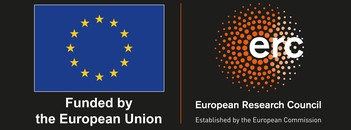MAJLIS – The Transformation of Jewish Literature in Arabic in the Islamicate World

- Principal Investigator: Prof. Ronny Vollandt
- Funded by: ERC
- Timeframe: 2021-2026
This project has received funding from the European Research Council (ERC) under the European Union’s Horizon 2020 research and innovation programme (Grant agreement No. 101002243).
In pre-modern times, an estimated ninety percent of the Jewish population lived under Muslim hegemony. Over the centuries, these Jews not only adopted the Arabic language for most forms of spoken and written communication, but also integrated concepts and techniques from their intellectual environment, resulting in one of the most extraordinary periods of literary creativity in all of Jewish history. Despite its importance, however, Judaeo-Arabic literature has been under-researched until very recently, due to inaccessible sources, disparate scholarly traditions and political antagonism.
The overall aim of MAJLIS is to explore comprehensively for the first time the fundamental way in which the adoption of Arabic transformed Jewish literature from the 9th to the 11th century. The project focuses on the Arabic literature of the Qaraites, a Jewish intellectual movement whose religious and scholarly center, the Academy of Jerusalem, played a catalytic role in these transformation processes. It will proceed by applying state-of-the-art digital tools to analyze manuscripts produced in the Academy with the aim of (1) tracing changes in Jewish literature and contrasting them to rabbinic literary models, especially with regard to how the texts were composed, produced, authored, and organized into a knowledge framework; (2) identifying the dominant scholars and analyzing their geographical origins, professional networks and institutional integration; and (3) comparing the Academy and its literature to non-Jewish literature and non-Jewish institutions of the time.
By bringing together unique expertise covering Judaic as well as Islamic studies at a time when the sources have become available to an unprecedented degree, MAJLIS will not only fundamentally add to our understanding of the history of Jewish literature, but also demonstrate that Jewish heritage in the Near East is of transcommunal and transnational importance.
Contributors
- Prof. Ronny Vollandt
- Dr. des. Sophia Schmitt
- Gregor Schwarb
- Dr. Maximilian de Molière
- Nadine Urbiczek
- Lea Poralla
- Noah Kurowski
- Nick Posegay
- Jasper Bernhofer
- Annabelle Fuchs
- Jakob Shub
- Mai Russo
- Emine Sezer
- Sara Mattutat

